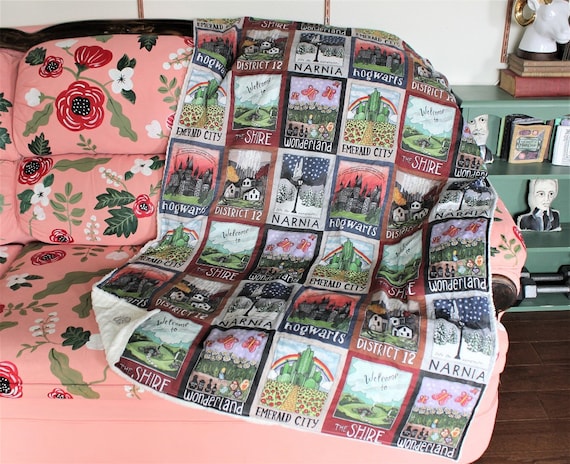Hmmm.
Queenie.
I am unsure what to make of this book truth be told. I went into it expecting entirely different things to what I got out of it and that, I think, is the problem sometimes with how books are marketed. This one has been marketed as the next Bridget Jones and so that's what I went into it thinking I was going to get.
It is not what I got.
I loved Bridget Jones. I still love Bridget Jones. I still find those books - and films - to be laugh-out-loud funny, heartwarming and relatable and funny.
I don't think I laughed once reading Queenie. Not proper Bridget-laughs anyhow.
That sounds bad, like it was a book trying to be funny but wasn't, or like I didn't like it. That's not the case. I did like it. Really really liked it.
The thing is I don't think Queenie is the next Bridget Jones. I don't think this is that kind of book at all. I wonder even, if it is even supposed to be funny.
It's a dark story this one: a story of loss and heartbreak and crippling depression, of losing everything and not being sure how to keep your head above the water and honestly, nothing that happened to Queenie made me laugh; it all made me sad, or angry, or shocked.
Queenie isn't awkward or embarrassing or clumsy like Bridget is, she's deeper than that, complicated and raw and hurting, really deeply hurting. That's not funny.
Her relationship breakdown, the casual sex that leaves her feeling empty, the casual (and not so casual) racism she encounters at every turn - somebody licks her shoulder and says it tastes like chocolate; she's not taken seriously for being offended at the use of the 'n' word; her own boyfriend doesn't even back her up when his family say the vilest things under the guise of a joke; people grab her hair in public; she's surrounded by comments like 'my last girlfriend was black'; and the way she's fetishised because of the shape of her body and the colour of her skin made my skin crawl - the way her family don't know how to support her, none of that is funny.
What it is though, is relevant and important and really cleverly done. Whilst I love - will always love - Bridget Jones we're a long way down the road from that now and we need more books like Queenie, books that are unapologetic in their truth, that can - and do - say, without ever seeming preachy 'look what the world looks like, really, outside of your own little bubble'.
It's really interesting because a lot of what happens to Queenie happens as a direct result of her own choices, but actually, you kind of have to look at the bigger picture and really examine how her circumstances might have dictated those choices which makes this a clever and interesting look at agency: Queenie has little to no self worth, she's caught in this toxic spiral and she makes awful choice after awful choice and awful things happen to her as a consequence.
But why? Why does she make those choices?
Her one and only long term relationship has fallen apart for starters - Queenie, a Jamaican Brit - thought her boyfriend Tom - who is white- was the best thing to happen to her and when he asks for a break she falls apart. God it's such bullshit isn't it, a break. We learn pretty quickly though that Tom is not all that and Queene, god love her, deserves so much more. His family are racist and whilst Tom claims he's not (you imagine him as 'how can I be racist my girlfriend is black') he never ever does anything to support Queenie, in fact, at his Mum's birthday when Queenie is once again subjected to yet more racism from these people who should be her family and leaves, Tom is enraged. They argue. Later we see him tell her he's still trying to forgive her for 'that thing at my Mum's birthday'. This, this guy is who Queenie has hung her hopes and dreams on.
(Also - sidenote, this is a really important, really important, look at racism and privilege and how badly we all need to check ourselves. Some of the things Queenie encounters in just the regular day are bad, and they are bad because they aren't necessarily meant to be racist and really: we should be past that now, shouldn't we?)
She's become estranged from her Mother, who it later transpires was in an abusive relationship, with a black guy actually, who treated both Queenie and her Mum appallingly. Neglect, that's what it boils down to, amongst other things.
She's got a job in journalism but when she tries to write something of worth - like a piece on Black Lives Matter - she's told to write about the best black dresses in the MeToo movement and then she has the mother of all blow outs with one of her best friends, loses her home and finds herself living back with her strict Jamaican grandparents.
.
As each of these things is slowly revealed you find yourself able to see how she's found herself spiralling - casual sex, always with white men and always leaving her feeling worse than she did before; poor performance at work; distancing herself from the people who love her; severe panic attacks; what looked and felt to me like an eating disorder. One thing on top of another that leaves her at rock bottom with no way out. It's sad.
It's sad until it's hopeful, because Queenie? She recognises her own toxic behaviour and even from her own special hell, she's determined to make a comeback.
This book is not at all what I expected it to be going in, but oh, am I glad I read it. It's such a good book and it is so so so worth your time. I promise. (Also she sets up a Whatapp grup with her besties and calls it 'The Corgis' and I love that so hard.) People will talk about this book, I'm sure of it.







